What is the method to install mysql with docker
Quick completion
Just copy and paste and follow it to complete it quickly, you don’t need to check the detailed steps
docker pull mysql:5.7
docker run -d -p 3306:3306 --privileged=true -v /usr/local/mysql/log:/var/log/mysql -v /usr/local/mysql/data:/var/lib/mysql -v /usr/local/mysql/conf:/etc/mysql/conf.d -e MYSQL_ROOT_PASSWORD=123456 --name mysql mysql:5.7
cd /usr/local/mysql/conf
vim my.cnf
Paste the following content and save
[client] default_character_set=utf8 [mysqld] collation_server=utf8_general_ci character_set_server=utf8
docker restart mysql
Use the tool to test (remember to open the port), the root user password is 123456
Detailed steps
First search for the mirror
docker search mysql
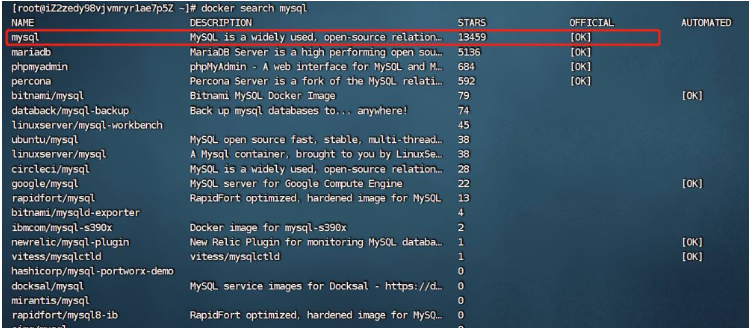
Pull the image
The first one searched will do. If you don’t specify the version, you can get the latest version. I use 5.7
docker pull mysql:5.7
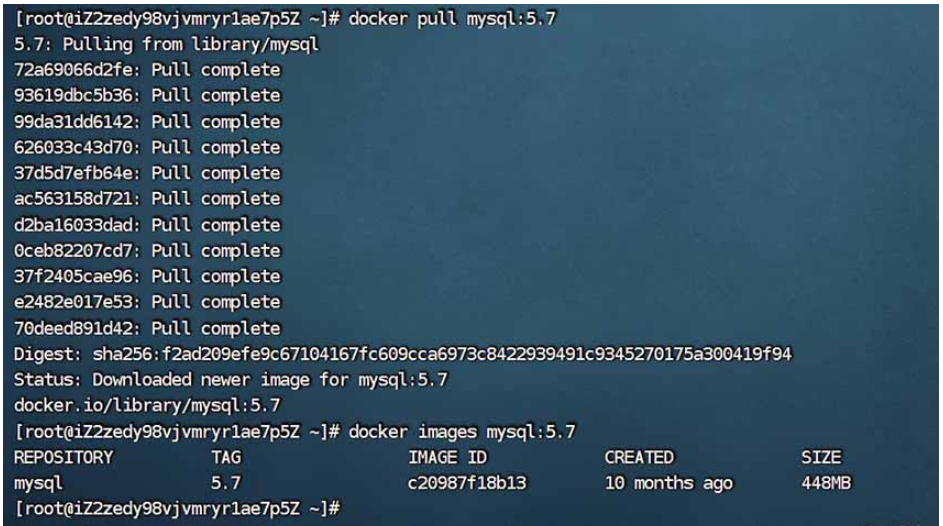
Create container (running image)
Use port 3306 both internally and externally (make sure your host’s port 3306 is not occupied, for example, your host also has mysql installed), and specify the root user The password is 123456
docker run -p 3306:3306 -e MYSQL_ROOT_PASSWORD=123456 -d --name mysql mysql:5.7

Enter the container
Connect to mysql inside the container, create a database, and test whether mysql is used normally
docker exec -it mysql /bin/bash
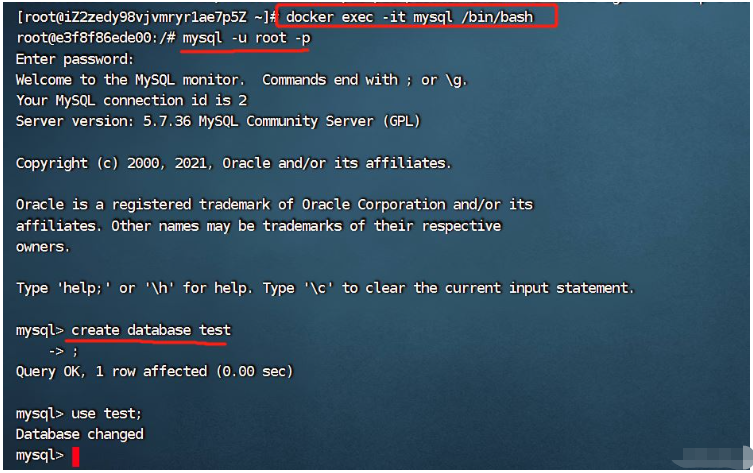
Create a table and insert data, everything is ok
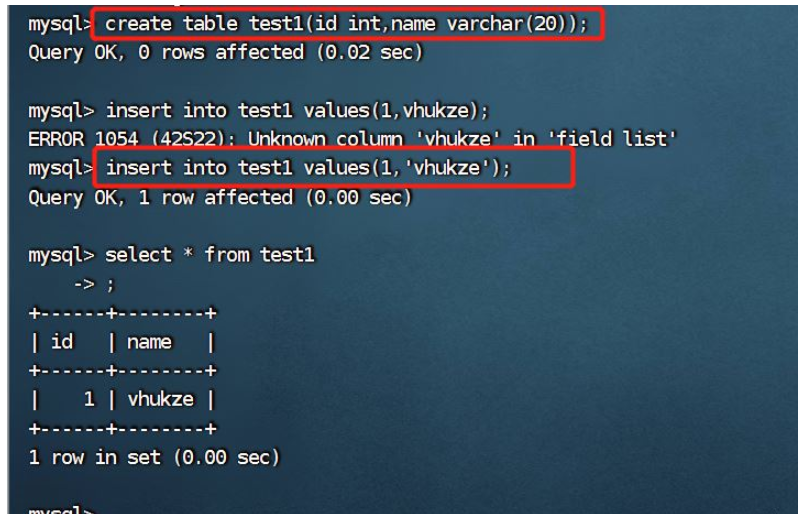
Use the connection tool locally to connect
Use locally There is no problem connecting to the Navicat tool, inserting records, and querying
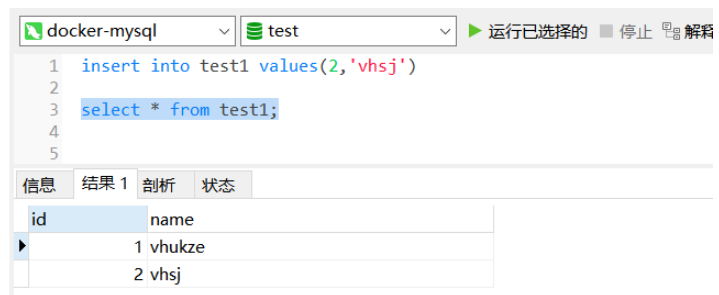
However, when inserting Chinese, an error is reported

Modify character set
The Chinese error must be a character set problem. Check the character set in the container (the client tool will process some character sets into local character sets), and you can see that most of them are Not utf8
show variables like 'character%';
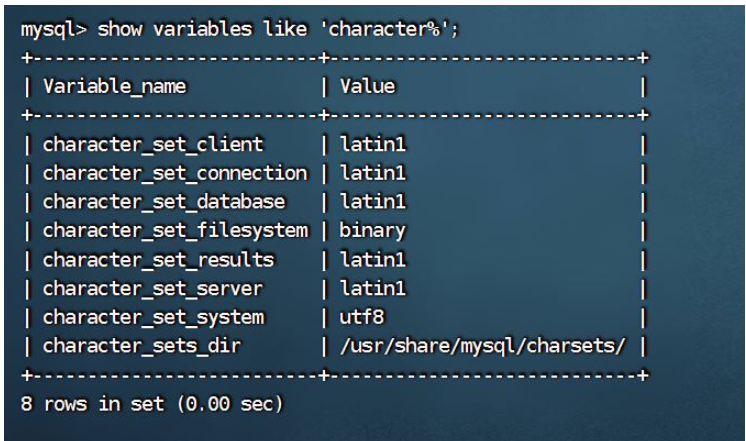
Now the mysql configuration file is still in the container and is not mapped to the host. It is not very convenient to modify and it is not safe. Deleting the container will not
You need to use container data volume at this time. If you don’t understand, you can check the previous blog post: Click here
Use container data volume to mount mysql data, Configuration files and logs
Delete the above container and re-create a container. This time the command is as follows
docker run -d -p 3306:3306 --privileged=true -v /usr/local/mysql/log:/var/log/mysql -v /usr/local/mysql/data:/var/lib/mysql -v /usr/local/mysql/conf:/etc/mysql/conf.d -e MYSQL_ROOT_PASSWORD=123456 --name mysql mysql:5.7
Mount three directories, namely logs, data, and configuration files
Create mysql configuration file
The mysql configuration file directory has been mounted above, and you can directly operate the corresponding directory on the host machine
Create a new my in the configuration file directory. cnf configuration file, write the following content, set the client and mysql server encoding to utf8
[client]default_character_set=utf8[mysqld]collation_server=utf8_general_cicharacter_set_server=utf8
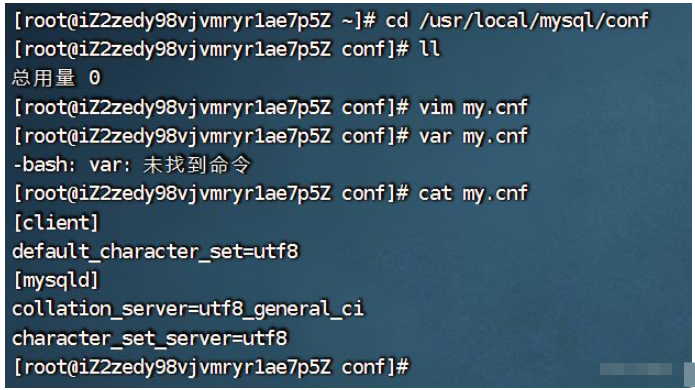
After changing the configuration file, restart the mysql container and enter the container again to view Character set, you can see that all are correct
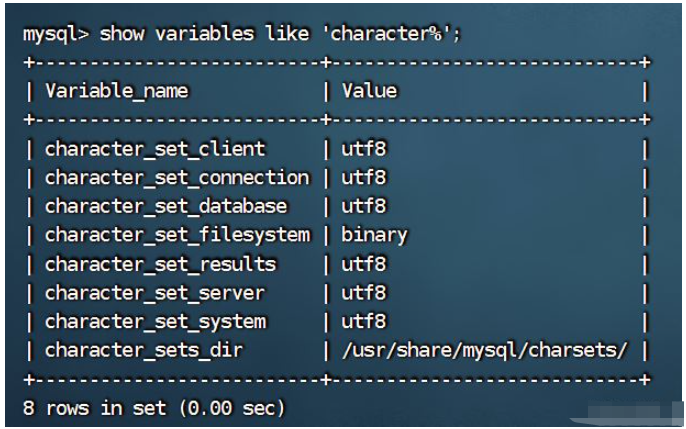
Create the library table again, insert the Chinese test, and successfully insert
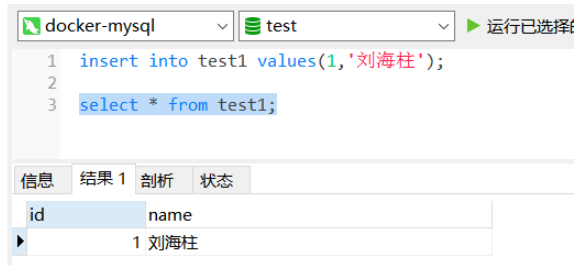
And the mysql data directory has also been mounted locally. Even if you delete the container and create a new container, you can use the same data volume to restore the previously created database table.
The above is the detailed content of What is the method to install mysql with docker. For more information, please follow other related articles on the PHP Chinese website!

Hot AI Tools

Undresser.AI Undress
AI-powered app for creating realistic nude photos

AI Clothes Remover
Online AI tool for removing clothes from photos.

Undress AI Tool
Undress images for free

Clothoff.io
AI clothes remover

Video Face Swap
Swap faces in any video effortlessly with our completely free AI face swap tool!

Hot Article

Hot Tools

Notepad++7.3.1
Easy-to-use and free code editor

SublimeText3 Chinese version
Chinese version, very easy to use

Zend Studio 13.0.1
Powerful PHP integrated development environment

Dreamweaver CS6
Visual web development tools

SublimeText3 Mac version
God-level code editing software (SublimeText3)

Hot Topics
 1387
1387
 52
52
 How to update the image of docker
Apr 15, 2025 pm 12:03 PM
How to update the image of docker
Apr 15, 2025 pm 12:03 PM
The steps to update a Docker image are as follows: Pull the latest image tag New image Delete the old image for a specific tag (optional) Restart the container (if needed)
 How to use docker desktop
Apr 15, 2025 am 11:45 AM
How to use docker desktop
Apr 15, 2025 am 11:45 AM
How to use Docker Desktop? Docker Desktop is a tool for running Docker containers on local machines. The steps to use include: 1. Install Docker Desktop; 2. Start Docker Desktop; 3. Create Docker image (using Dockerfile); 4. Build Docker image (using docker build); 5. Run Docker container (using docker run).
 How to copy files in docker to outside
Apr 15, 2025 pm 12:12 PM
How to copy files in docker to outside
Apr 15, 2025 pm 12:12 PM
Methods for copying files to external hosts in Docker: Use the docker cp command: Execute docker cp [Options] <Container Path> <Host Path>. Using data volumes: Create a directory on the host, and use the -v parameter to mount the directory into the container when creating the container to achieve bidirectional file synchronization.
 How to exit the container by docker
Apr 15, 2025 pm 12:15 PM
How to exit the container by docker
Apr 15, 2025 pm 12:15 PM
Four ways to exit Docker container: Use Ctrl D in the container terminal Enter exit command in the container terminal Use docker stop <container_name> Command Use docker kill <container_name> command in the host terminal (force exit)
 How to view the docker process
Apr 15, 2025 am 11:48 AM
How to view the docker process
Apr 15, 2025 am 11:48 AM
Docker process viewing method: 1. Docker CLI command: docker ps; 2. Systemd CLI command: systemctl status docker; 3. Docker Compose CLI command: docker-compose ps; 4. Process Explorer (Windows); 5. /proc directory (Linux).
 How to start mysql by docker
Apr 15, 2025 pm 12:09 PM
How to start mysql by docker
Apr 15, 2025 pm 12:09 PM
The process of starting MySQL in Docker consists of the following steps: Pull the MySQL image to create and start the container, set the root user password, and map the port verification connection Create the database and the user grants all permissions to the database
 How to check the name of the docker container
Apr 15, 2025 pm 12:21 PM
How to check the name of the docker container
Apr 15, 2025 pm 12:21 PM
You can query the Docker container name by following the steps: List all containers (docker ps). Filter the container list (using the grep command). Gets the container name (located in the "NAMES" column).
 How to save docker image
Apr 15, 2025 am 11:54 AM
How to save docker image
Apr 15, 2025 am 11:54 AM
To save the image in Docker, you can use the docker commit command to create a new image, containing the current state of the specified container, syntax: docker commit [Options] Container ID Image name. To save the image to the repository, you can use the docker push command, syntax: docker push image name [: tag]. To import saved images, you can use the docker pull command, syntax: docker pull image name [: tag].




